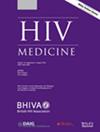Factors influencing the quality of life and social skills of children living with HIV: A case–control study
Abstract
Introduction
Our objective was to understand the current status of and factors influencing the quality of life and social skills of children living with HIV and to provide a reference for improving medical service management and formulating support policies.
Methods
A total of 183 children aged 7–14 years, living with HIV, and admitted to the Guangxi Zhuang Autonomous Region Center for Disease Control and Prevention from March 2022 to February 2024 were included retrospectively. We used the children's basic information and their scores from the Quality of Life Scale for Children and Adolescents (QLSCA) and Normal Development of Social Skills From Infant to Junior High School Children (S-M scale) to explore their the status of their quality of life and social skills and the factors influencing both.
Results
Four factors (life satisfaction, socio-psychological functioning, physical and mental health, and living environment) and QLSCA T-scores in the case group were significantly lower than those in the control group (p < 0.01). S-M scale scores (self-help, locomotion, operation, communication, socialization, self-direction) in the case group were significantly lower than those in the control group (p < 0.001). The main factors affecting the social skills of children living with HIV were side effects from antiretroviral therapy (odds ratio [OR] 7.365, p < 0.003), comorbidities (OR 12.948, p < 0.006), intellectual development (OR 6.045, p < 0.027), and awareness of HIV infection status (OR 0.261, p < 0.014).
Conclusion
Children living with HIV have low quality of life and poor social skills. Clinicians should pay attention to side effects from antiretroviral therapy, comorbidities, children's intellectual development, and their awareness of their HIV infection status.

 求助内容:
求助内容: 应助结果提醒方式:
应助结果提醒方式:


